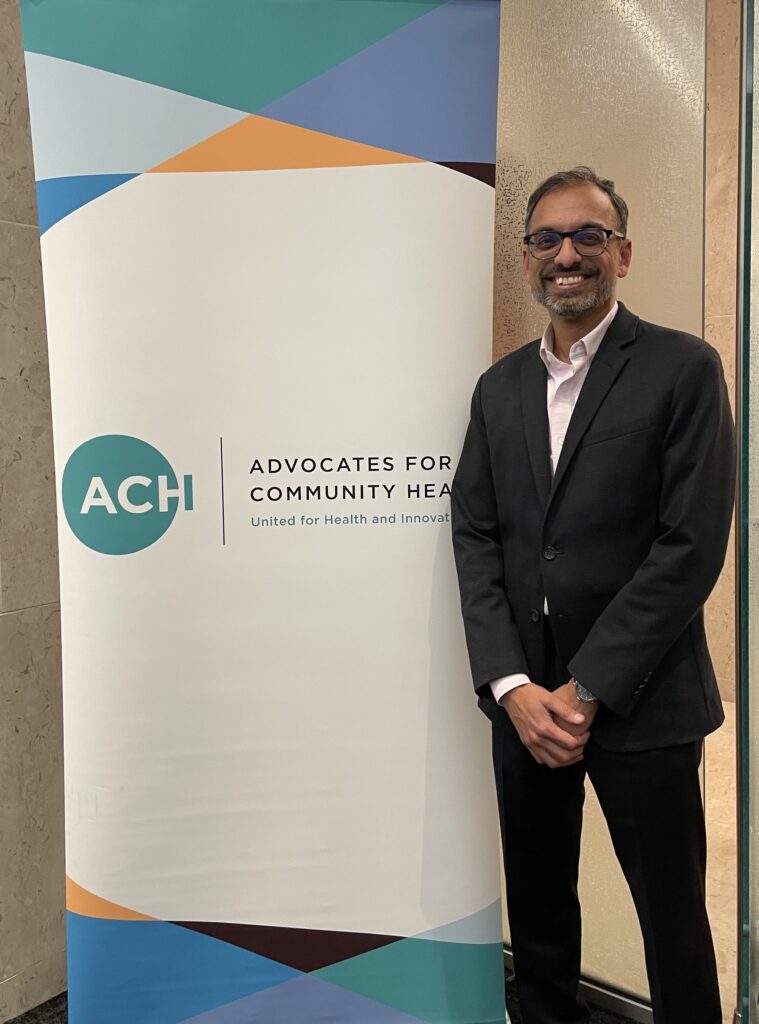The first Learning Collaborative was held in collaboration with UnitedHealthcare for ACH members.
In response to our member needs, Advocates for Community Health (ACH) recently gathered a group of community health center experts and stakeholders in Washington, D.C. to discuss the current state of value-based care (VBC).
Over the past decade, the federal government has started to reimburse health care through a value-based payment structure. This model moves away from paying the health care system by the number of services and instead incentivizes improving the quality of care and health outcomes of patients. Thanks to this shift, a more financially sustainable, affordable, and efficient system is expected. Policymakers can and should prioritize these safety net providers, as they serve more than 31 million patients yearly. They have an opportunity to connect VBC to the shared goal of health equity.
In collaboration with UnitedHealthcare Community & State, participants of the VBC Learning Collaborative shared best practices, data collection and assessment tools, research, and successful state-specific programs and models. In addition, presenters and participants shared tools, such as general standards for federally qualified health centers (FQHCs) pursuing VBC, standardized quality metrics, and template contracts.

ACH was grateful to be joined in person by Dr. Srinivas Merugu, UnitedHealthcare’s chief medical officer, provider strategy. “We believe in FQHCs’ power of problem-solving. We want FQHCs to bring us their audacious ideas,” said Dr. Merugu during the discussion.
Another important insight discussed was the disconnect between providers/health center staff and payers around data sharing. Facilitating more open and honest conversations will greatly benefit both sides. Dr. Merugu also explored topics such as accessibility and affordability of technological innovations.
ACH looks forward to supporting community health centers that wish to set up value-based contracts. Feedback from participants includes reviewing the state of Medicare, Medicaid, and commercial VBC to understand the distinctions and how they differ between states. Learning Collaborative participants expressed interest in learning how to collaborate across states and what operational technologies and strategies they can develop to gain payer support.
ACH’s members partner together to lead the charge in delivering health care to underserved communities. Learn more about our next To Learning Collaborative for members.